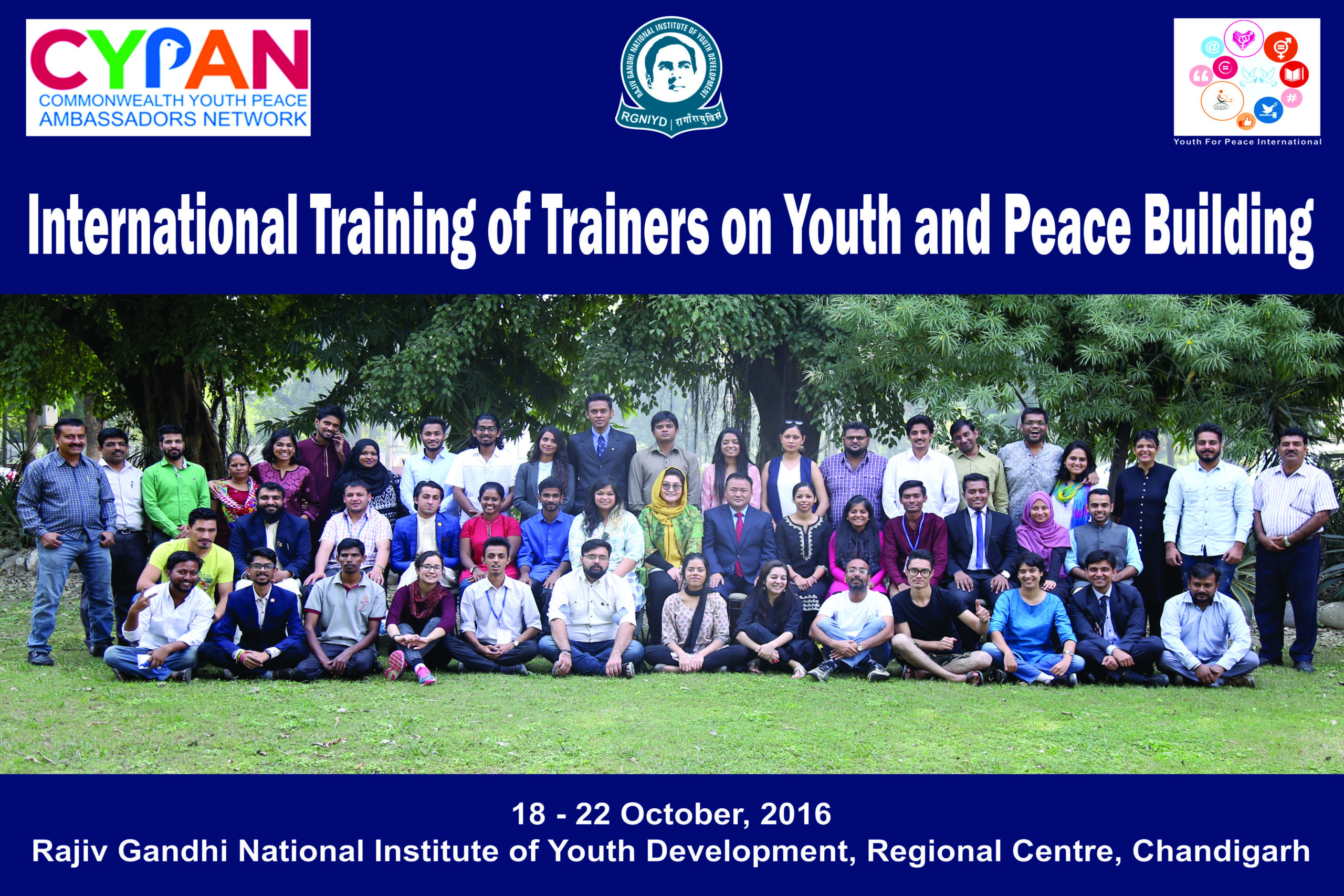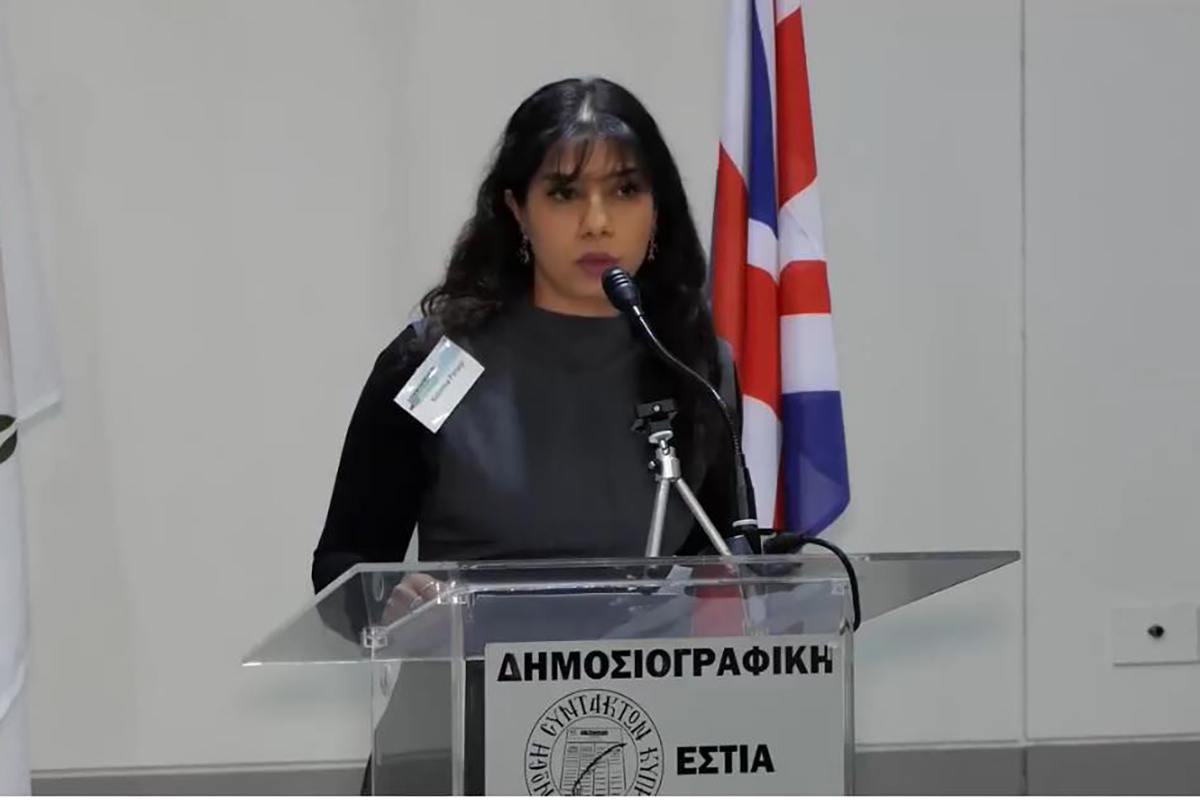CYPAN partners to hold training on youth peace-building
November 11th, 2016
“I lost my father 9 years ago. When I chose cycling and music to empower young girls, I didn’t know it would make me a nominee for the 2016 Nobel Peace Prize.” – Zhala Sarmast, 17 years old, Afghanistan
“I had to leave my home, family and country to save my life from violence in communal riots. Now I am trying to find meaning in this life by helping my fellow refugees.” – Ali Johar, 21years old, Burmese refugee currently living in India
Thirty-seven amazing young peace-builders from India, Afghanistan, Nepal, Bangladesh, Sri Lanka, Myanmar, the Maldives and Malaysia attended a five-day residential training aimed at empowering young minds from South Asia on themes of youth, peace, conflict management and transformation. The International Training of Trainers (ToT) on Youth and Peace-building took place from 18-22 October 2016, organised by the Rajiv Gandhi National Institute of Youth Development Regional Centre, Chandigarh, in collaboration with Youth for Peace International and the Commonwealth Youth Peace Ambassadors Network (CYPAN).
The United Nations Security Council adopted the historic Resolution 2250 in December 2015. This brought to light the importance of engaging young people in problems of conflict and security, and highlighted the need to empower them to engage in peace-building processes. With this as the founding stone, CYPAN is motivated to train young persons and spark their interest in community welfare activities.
The training focused on enhancing participants’ skills in organising, planning, facilitating, and evaluating conflict transformation and peace-building workshops. Core values such as inclusion, no competition, safety, and role-modelling were introduced through “Play for Peace” activities. The goal was to break stereotypes and bring people together to promote relationships in places that suffer from a history of cultural, racial or religious tensions, bullying, and discrimination, as well as to inspire community development initiatives to improve the quality of life of those in need.
Other aspects covered included self-personality analyses, conflict management styles, and theories of conflict, violence and challenge. Participants were also able to share their stories during discussions based on reflection, active listening, and safe zones. Many of them were moved to tears, but the days usually ended on a lighter note, with all delegates singing and dancing to popular folk songs from different countries.
The ToT aimed to not only train young people to create a tolerant and peaceful environment in their communities, but also to form larger youth networks in their countries so that stakeholders would acknowledge youth not just as beneficiaries but also as partners in peace-building. Some participants will become part of their national CYPAN teams and begin participating in campaigns to empower young people to achieve, promote and preserve peace. These Global Peace Ambassadors will also be supported to steer the launch and implementation of Resolution 2250 in their countries over time.




